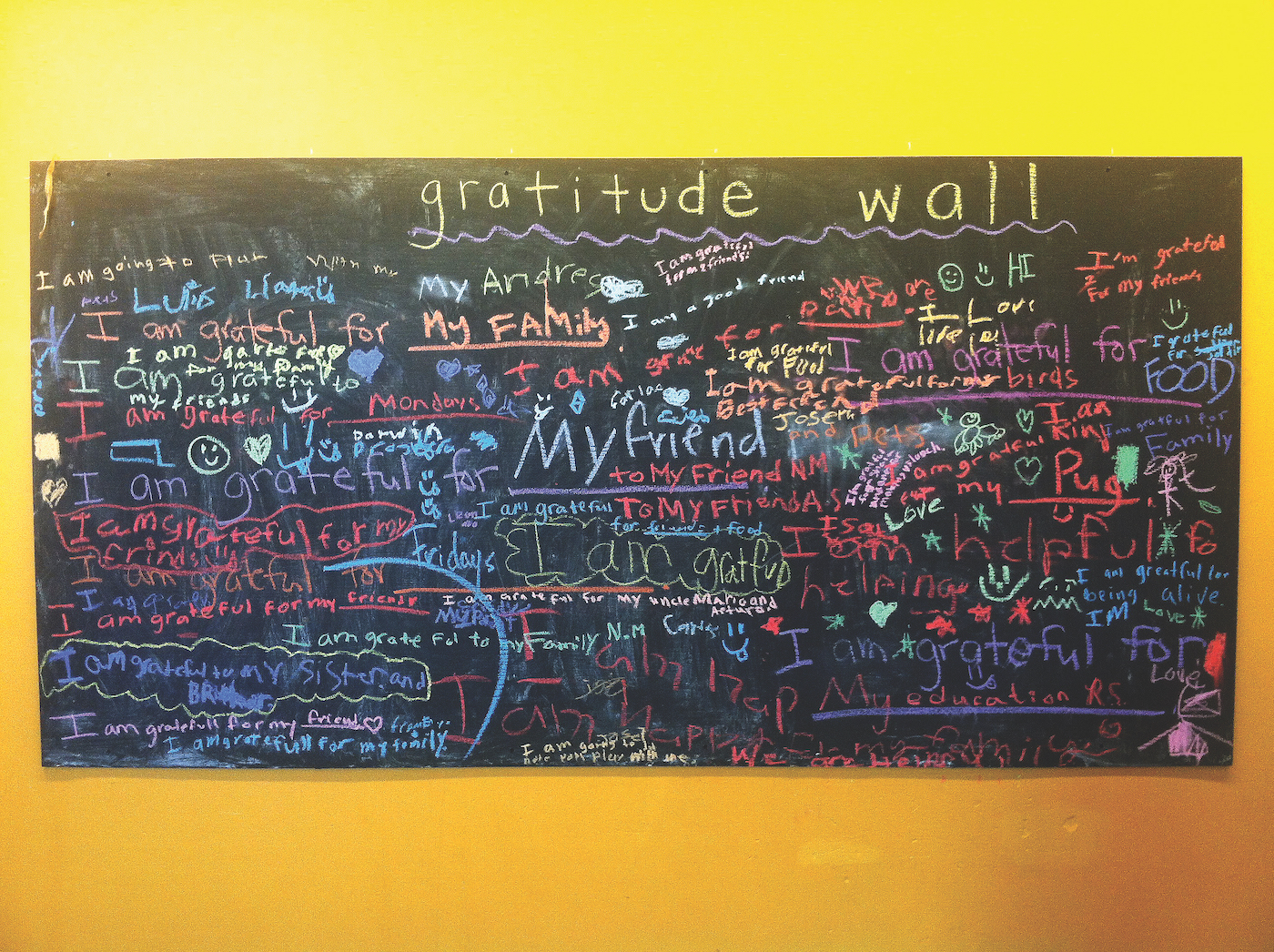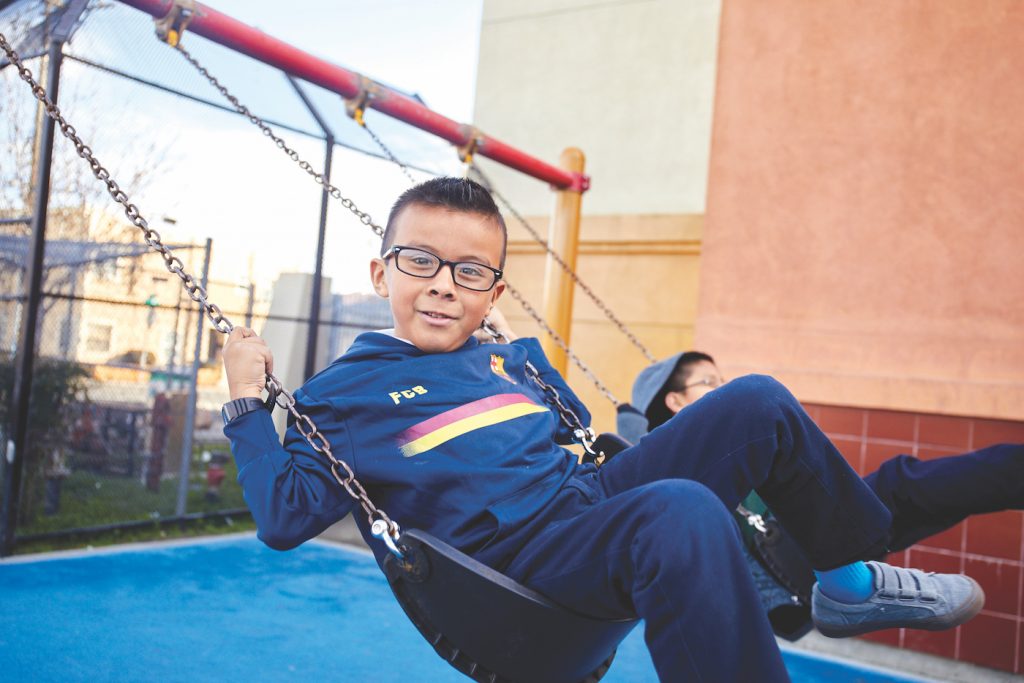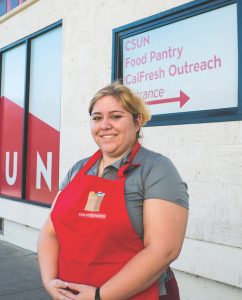An Unconditional Education Model Because Every Kid Deserves Educational Success

When Robin Detterman took a job 15 years ago as a special education teacher at Pathfinder Academy – a school of last resort for youth operated by Seneca Family of Agencies – she had no idea she would become an innovator leading the charge in transforming how education was delivered to struggling students.
During those early years as a teacher and then assistant principal at Seneca’s James Baldwin Academy in Northern California, Detterman would often discuss with her colleagues what it would be like if someone intervened earlier in their students’ lives. These were students who were struggling, and often ended up in educational institutions beyond the pale of standard public schools.
Public systems are often reactive, meaning that they only dole out money and resources, to kids who have already been disruptive in school and demonstrated maladaptive coping behaviors.

“We work across special education and mental health and both of those systems require a child to fail before they can get any help,” Detterman said.
From this idea, Detterman and her colleagues at Seneca created a new model of learning called Unconditional Education. At the time, the program was established through a combination of school funding, philanthropy and subsidization from a Federal Investing in Innovation Fund grant through the Department of Education.
Rather than wait for the students to fail, Seneca brings a broad array of services to public schools in order to meet the students and their families where they are at.
That was 2010. Today the Unconditional Education program is currently working with 100 schools in California and Washington with roughly 6,000 students, many of whom are being served right here in Southern California.
Detterman has worked her way up and now holds the title of Chief Program Officer of Educational Services at Seneca where she oversees the program operations, and she is the co-author of Unconditional Education: Supporting Schools to Serve All Students.
“In our early days, we may have erred a little too much on ‘we’ll come in and do this for you,’” Detterman said. “But that’s not a sustainable way to change.”
For Detterman, the most rewarding part is helping teams of educators – who are often at their wits’ end when dealing with struggling students – discover new solutions.
“Sometimes teams can get really stuck: ‘I can’t help this kid. I don’t know what else to try,’” she said. “One of the things I really love about this work is sitting with a team and cultivating hope so that they feel efficacious in the work they’re doing.”
Seneca
Donate now!www.senecafoa.org
(510) 654-4004
Chief Advancement Officer: Nathaniel Foster
Mission
Seneca’s mission is to help children and families through the most difficult times of their lives. We are driven by the fundamental belief that children and families do not themselves fail, but rather are failed by systems unable to meet their complex needs. Guided by our core agency values of love, compassion, joy, hope, courage, respect and curiosity, Seneca refuses to fail the young people and families we serve. We offer each child and family a profound promise: you will be supported every step of your journey, no matter what challenges you face along the way.
Begin to Build a Relationship
We know you care about where your money goes and how it is used. Connect with this organization’s leadership in order to begin to build this important relationship. Your email will be sent directly to this organization’s director of development and/or Executive Director.
Ever since I started in the Seneca program, I can truly say it changed my life forever in the best way. I have met people that I know truly care for us students. Having a support system like them has helped me in many ways. I have been going to school more because I know that there are people there that will help me in the hard times, my class work, and people I can talk to to resolve my problems. It’s honestly helpful having people there for students in hard times because some of us don’t have anyone to talk to… And I am now graduating from high school.
Help Expand the Unconditional Education Program
The next phase for the Unconditional Education program is to conduct a large evaluation to demonstrate its effectiveness. By learning what works and what doesn’t, they will be able to better help serve their school partners as well as create a scalable model that can be shared broadly among schools. In Southern California, the study will benefit approximately 5,000 students and families a year across eight schools.
Seneca seeks $1.4 million dollars to conduct a year-long cohort study that follows eight schools in a district and then performs a matched comparison to see what’s different for students in UE versus other interventions.
Friends of Seneca
California Alliance of Children and Family Services
Education for Change Public Schools
Irene S. Scully Family Foundation
KIPP Bay Area Public Schools
Lighthouse Community Schools
Oakland Unified School District
Room to Breathe Project
The Primary School
West Contra Costa Unified School District
The Witkin Foundation
Battery San Francisco
Battle Family Foundation
Bernard E. and Alba Witkin Charitable Foundation
Bill and Melinda Gates Foundation
Chamberlin Family Foundation
L. I. Green Foundation
Quest Foundation
Thomas J. Long Foundation
Wells Fargo
